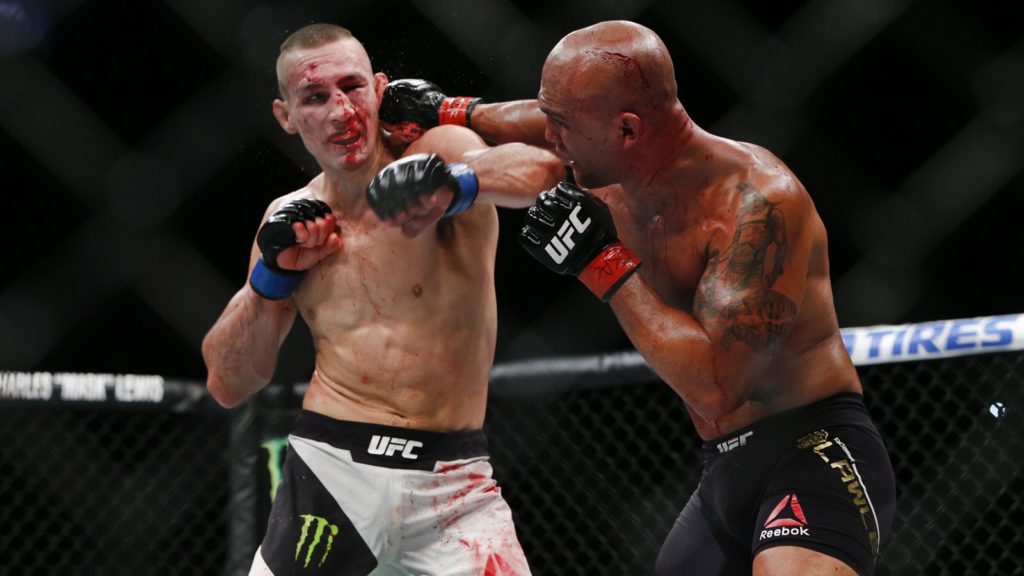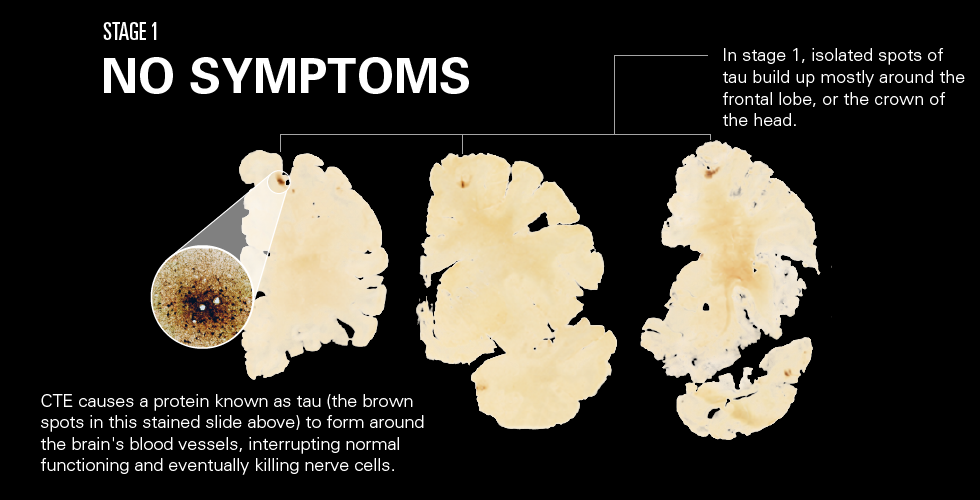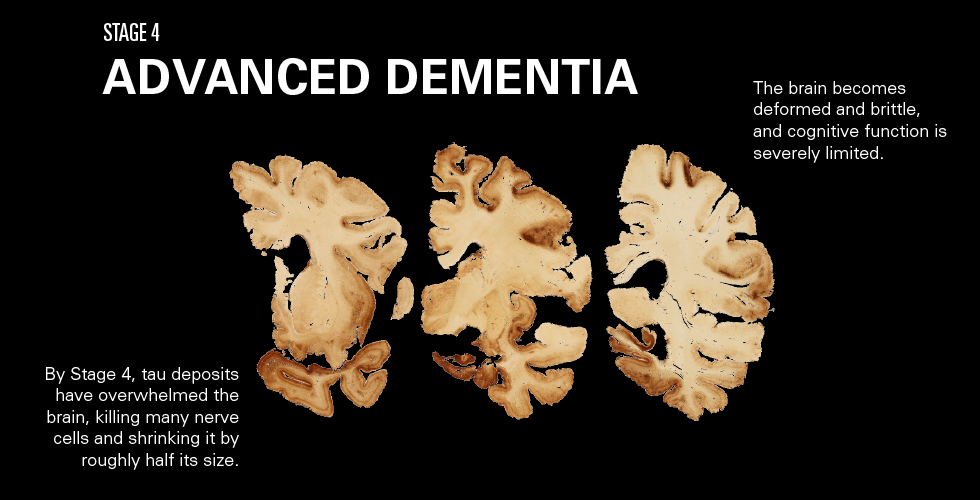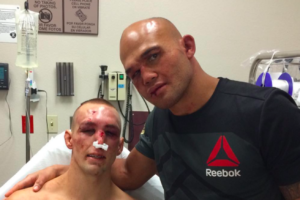Several UFC fighters mentioned the need for unionizing fighters due to inadequate pay and long-term effects due to an accumulation of damage. The UFC has denounced the idea numerous times but it still arises and for very good reasons.
In the NFL they have the NFL Players Association which has helped numerous athletes throughout the years. Here’s a brief breakdown of the NFL Players Association:
- Represents all players in matters concerning wages, hours and working conditions and protects their rights as professional football players
- Assures that the terms of the Collective Bargaining Agreement are met
- Negotiates and monitors retirement and insurance benefits
- Enhances and defends the image of players and their profession on and off the field
The NBA has the National Basketball Players Association (NBPA), which is the union for current professional basketball players in the National Basketball Association (NBA). Established in 1954, the NBPA mission is to ensure that the rights of NBA players are protected and that every conceivable measure is taken to assist players in maximizing their opportunities and achieving their goals, both on and off the court. Whether it is negotiating a collective bargaining agreement, prosecuting a grievance on a player’s behalf or counseling a player on benefits and educational opportunities, the NBPA advocates on behalf of the best interest of all NBA players.
The Mixed Martial Arts Fighters Association (MMAFA) does exist but it’s far from where it’s sustainable. With proper support and more faith from past and present fighters they possibly could make some noise. The movement would need to start with the push or endorsement of UFC veterans, primarily Hall of Famers.
MMA Unionizing for Financial Stability
There needs to be a base salary – a minimum that a fighter can make for a fight – like the league minimum when an athlete is signed to most other major sports. Possibly even a bonus or agreed upon incentive for reaching a certain amount of fights within a calendar year. With as much damage as the average UFC fighter endures, a retirement plan needs to be in place seeing how the human body can’t withstand damage forever. Cowboy Cerrone fought six times from January 25, 2014, to January 18, 2015, and won all six fights. Neil Magny fought eleven times from February 1, 2014, to March 20, 2016, only losing one fight during that run.
A $100k bonus or incentive, for numbers of fights reached and won, at the end of the calendar year would be a nice way of alleviating the damage endured while making the sport and company appealing. It certainly wouldn’t break the bank seeing how only 32 fighters have compiled twenty plus fights in the Octagon since the company formed 23 years ago.
Here’s a look at league minimums and retirement plans in other major sports:
- NHL league minimum: $550,000 retirement plan: pension
- NBA league minimum: $507,336 retirement plan: 401k
- MLB league minimum: $507,500 retirement plan: pension
- NFL league minimum: $435,000 retirement plan: 401k, annuity
MMA Unionizing for Health Concerns
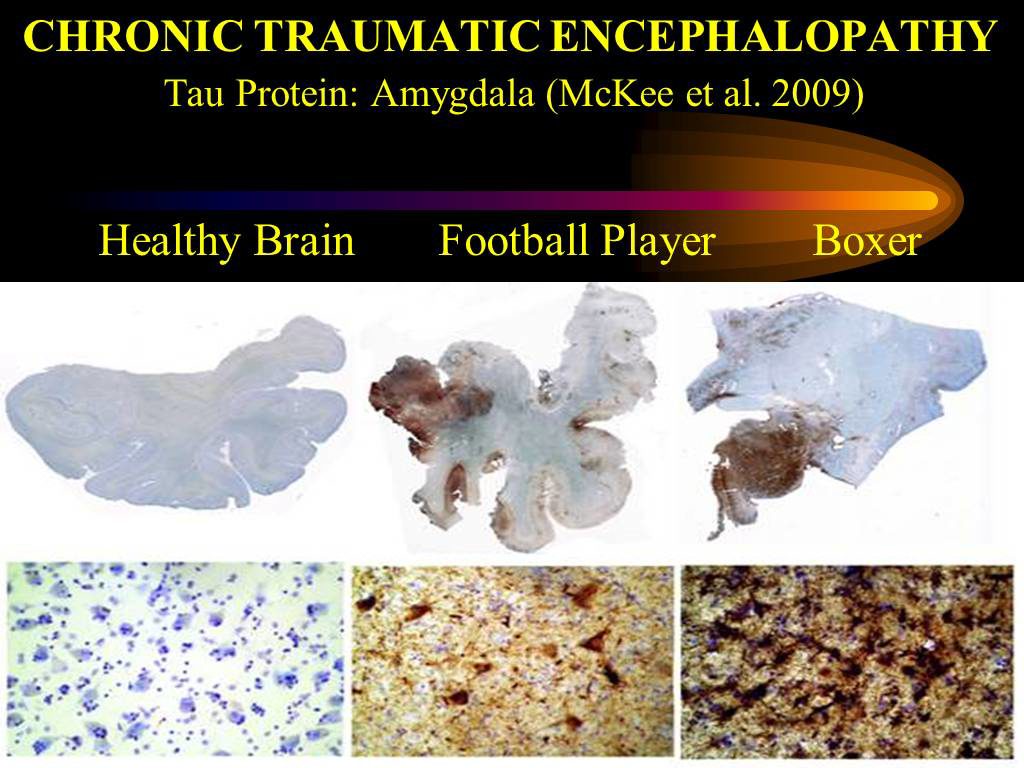
Since joining the UFC, Cowboy Cerrone has entered the Octagon twenty times. In exactly five years time, spanning from February 5, 2011, to February 21, 2016, he’s averaged four fights a year and he’s booked for another upcoming event. He’s more likely to experience the effects of Chronic Traumatic Encephalopathy (CTE) far sooner due to all his ring time than someone like Chris Weidman whose fought ten times in that same span. Traumatic brain injury affects boxers, pro wrestlers, football players and mixed martial artists the most.
The NFL agreed to pay $765 million to settle concussion-related lawsuits by more than 4,500 ex-players in 2013. They claimed the NFL failed to protect them adequately against concussions and head injuries.
CTE is a progressive degenerative disease found in people who have had a severe blow or repeated blows to the head. The disease was previously called dementia pugilistica (DP), i.e. “punch-drunk,” as it was initially found in those with a history of boxing.
Gary Goodridge, former UFC, Pride FC and K-1 Veteran was diagnosed with a specific kind of CTE: degenerative dementia. Goodridge eventually lost the sense of smell in one nostril and his balance when standing on one leg. His condition continues to worsen as time goes on as his cognitive abilities appear impaired, speech is slurred and his short term memory is deteriorating. Coping with his condition is extremely difficult and depending on the type of care he’ll need, money may be a major issue for him.
UFC Hall of Famer Mark Coleman could have benefited from a Fighter’s Association or Fighter’s Union when concerning his medical troubles. Once a fighter is no longer active, no longer under contract, they no longer have access to the insurance the UFC offers. Mark Coleman needed several hip surgeries and thankfully his close friend and fellow fighter, Wes Sims, was able to raise $50k through his “Save The Hammer” gofundme.com fundraiser.
Many of the fighters who’ve provided the most entertainment in the past 20 years may end up being the ones who need this type of association the most (Wanderlei Silva, Diego Sanchez, Andrei Arlovski, Vitor Belfort and Robbie Lawler).
Whether the union or fighters association is the answer, the fact remains that some sort of plan needs to be in place for fighters regarding retirement and health care. A small list of fighters do make a large sum of money who may not care for a league or fighter minimum; the vast majority who don’t make a lot per fight need something negotiated for a league minimum to help save for medical expenses down the road. We’ll see what comes about in the near or distant future.

